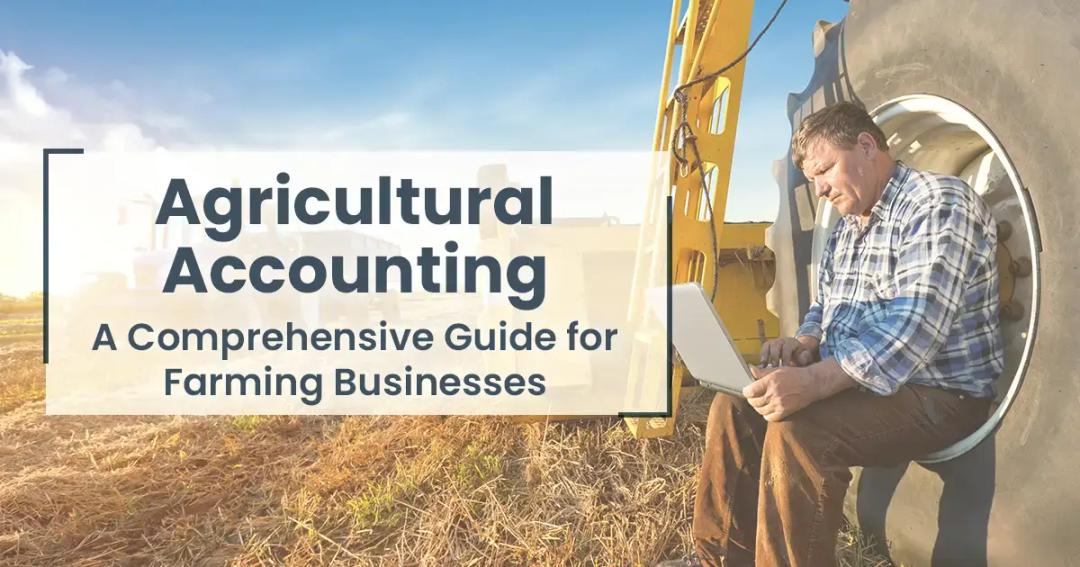
Farming is a complicated business, and that's before you get to accounting for farmers. If you're a farmer or involved in the farming industry, you need to be on top of things on the accounting side of your business. Records need to be current, and IRS rules must be complied with. You also need to account for things other small businesses do and understand accounting issues specific to your industry, including how to treat livestock, land, equipment, and more.
If you've struggled or need a refresher, use this blog as your comprehensive guide to agricultural accounting for farming businesses.
What is agricultural accounting?
The accounting done for your farming business is called agricultural accounting. Like other businesses, agricultural accounting involves keeping current records and generating financial statements to ensure your farm's financial health.
Agricultural accounting must also focus on areas specific to farming, such as livestock, farm equipment, and the value of your farmland.
Which types of businesses are classified as farm businesses?
The IRS has laid out specific criteria to qualify as a farm. According to the IRS, you qualify as a farming business "if you cultivate, operate, or manage a farm for profit, either as an owner or tenant."
A farm will include the following:
- Livestock
- Dairy
- Poultry
- Fish
- Fruit
- Truck farms
Farms also include plantations, ranches, ranges, orchards, and groves. You do not qualify as a farming business if you contract to harvest a commodity or buy or resell crops or livestock from a third party.
Which accounting methods can be used for an agricultural business?
Regarding agricultural accounting, farming businesses typically use one of two methods: accrual or cash basis accounting.
Cash basis method
Cash basis is the accounting method preferred by most farmers, and farmers account for expenses when they are paid and receivables when payment is received. While cash basis accounting is less precise than accrual accounting, it is much easier.
Accrual basis method
Some farmers won't have a choice in which accounting method they use, and it comes down to whether they qualify. You must use accrual accounting if your farm is formed as a corporation with gross receipts of $26 million or more annually. Accrual accounting is also necessary if you're a tax shelter or in a partnership with a corporation with gross receipts of $26 million or more yearly.
Accrual accounting lets farmers account for expenses when bills are received, as opposed to when they pay them. You would also use this method to determine gross income if the farm keeps an inventory. While this option usually provides more accurate accounting, it is more complex than cash basis accounting.
Farming accounting FAQs
Can I deduct farm business expenses?
Farmers can deduct qualifying expenses related to their business. The rule for a qualifying deduction is that the expenses are ordinary and necessary within the context of your farm. Qualifying deductions include supplies, feed for livestock, insurance, recordkeeping, and more.
What can't I deduct as farm business expenses?
While there are numerous deductible expenses related to farming, not all expenses can be written off. Personal expenses, including dwelling and vehicle maintenance, cannot be deducted.
What is classified as farm income?
Depending on the size and scope of your farm, numerous revenue streams are considered farm income. Farm income includes revenue from operating a farm, selling crops, subsidies from the government, and more.
Understanding what qualifies as farm income is imperative. If you don't, your recordkeeping efforts won't be accurate, which might introduce fines and increased IRS scrutiny.
What happens when bad weather impacts my farm?
Being at the mercy of the weather is a challenging aspect of farming. If your livestock sales are delayed due to provable weather-related issues, the IRS allows you to postpone reporting the gain from those sales.
What is the common tax form used for farming businesses?
Farmers who are sole proprietors must file a Schedule F Profit or Loss from Farming form. This form lets you report your net profit or loss for the year. Your farm's profits and losses go on Form 1040 to determine your total tax liability for the year.
Partner with Experts who specialize in Farming accounting
Farming is a rewarding business, but the complexities can be daunting. Your farming business needs your undivided attention to thrive, which is why so many farmers outsource their accounting work to 1-800Accountant, America's leading virtual accounting firm for small businesses.
Whether it's business tax advisory, small business taxes, bookkeeping for farmers, or any of our professional accounting services, we have the solution you need at a price that works for your farm. Schedule a quick consultation – usually 30 minutes or less – to learn how we can help.
This post is to be used for informational purposes only and does not constitute legal, business, or tax advice. Each person should consult his or her own attorney, business advisor, or tax advisor with respect to matters referenced in this post. 1-800Accountant assumes no liability for actions taken in reliance upon the information contained herein.
